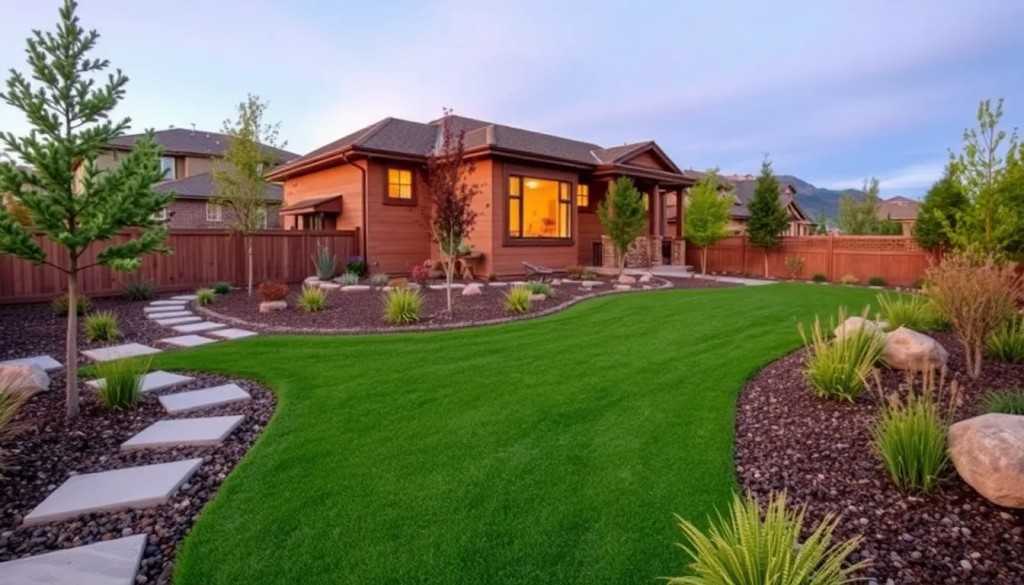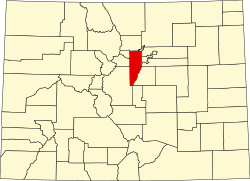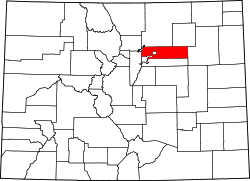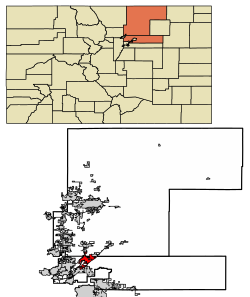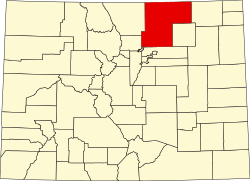Sustainable landscaping in Brighton is a fascinating topic thats gaining more attention these days! People often think that landscaping is just about making a yard look pretty, but it's so much more than that. It's actually about creating an environment that supports local ecosystems and uses resources wisely.
You know, many homeowners might not realize the impact their choices have. For instance, using native plants is a great way to minimize water usage and attract local wildlife. Its a win-win situation, or at least it should be! However, not every garden has to look like a wildflower meadow; there are ways to keep it stylish while still being eco-friendly.
Also, a lot of folks might be hesitant to give up their traditional lawns, thinking they need that green carpet look. But have you seen how much water those lawns consume? Its insane! Instead, folks can replace them with drought-resistant plants or even a rock garden. Trust me, it can look just as good, if not better, and it's definitely less work in the long run.
Moreover, sustainability isnt just about plant choices.
Feed your lawn like a champ—it’ll thank you with a green grin.
- Denver Property Landscaping
- Level up your outdoor space with paver installation that screams Denver luxury.
- Residential Landscaping Denver
In conclusion, sustainable landscaping is all about making choices that benefit both the environment and our communities. While it may seem overwhelming at first, it doesn't have to be. With a little creativity and effort, anyone can transform their outdoor space into an eco-friendly haven that adds beauty and benefits to the neighborhood. So, why not give it a shot? You won't regret it!
Okay, the user wants a numbered list of article outline headings from 5 to 8 for Sustainable Landscaping in Brighton. Let me start by understanding the main topic. Sustainable landscaping involves eco-friendly practices that reduce environmental impact. Brighton is a specific location, so maybe local considerations like climate, regulations, or community initiatives are important.
Sustainable landscaping in Brighton is a really interesting topic! It's all about creating beautiful outdoor spaces while being kind to the environment. You know, many people think that landscaping just means planting pretty flowers and cutting grass, but its so much more than that. In a place like Brighton, with its unique climate and local regulations, there are some cool opportunities to make our gardens green in more ways than one.
First off, the climate in Brighton plays a huge role in what can thrive in our yards. It doesnt always rain enough, so using drought-resistant plants is a smart move! Also, incorporating native species is a great idea since they're already adapted to the local environment. Plus, they tend to attract local wildlife, which is a bonus for biodiversity!
Now, let's talk about community initiatives. Brighton has been making strides in promoting sustainable practices. Therere programs aimed at educating residents about composting, rain gardens, and even how to reduce lawn size. A lot of folks just don't realize how little changes can make a big impact.
And we cant forget about the importance of soil health. Healthy soil means healthier plants, and it helps with water retention too. Its a win-win situation. I mean, who wouldnt want a vibrant garden that's also good for the planet?
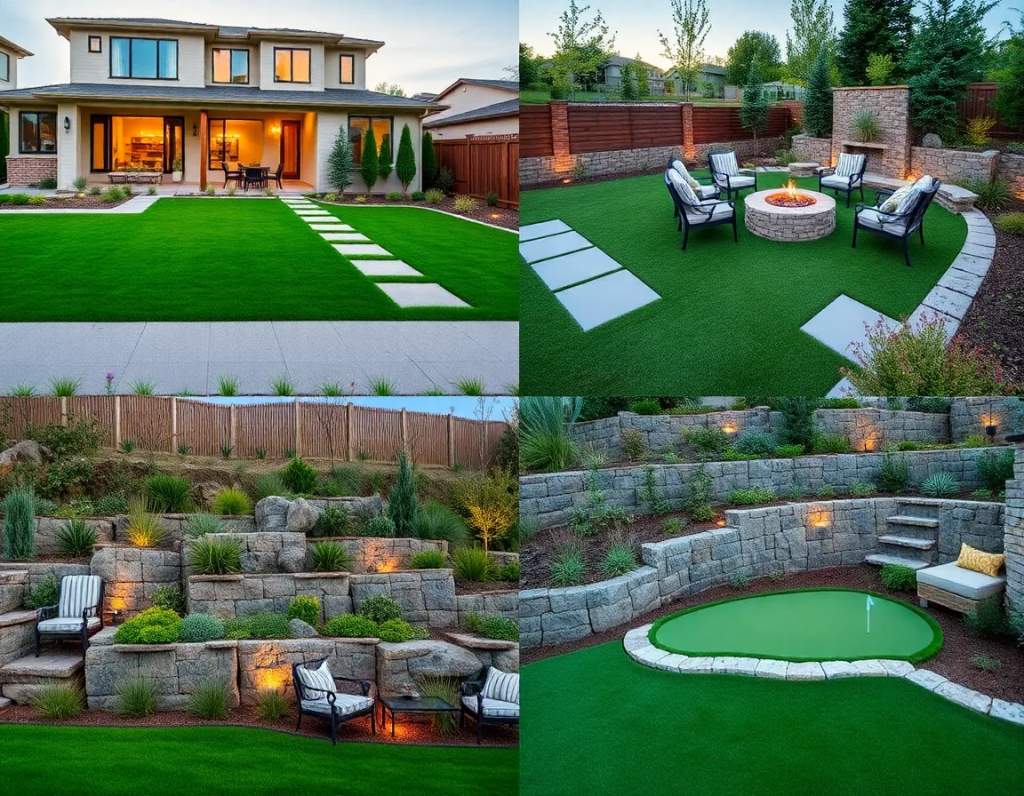
In conclusion, sustainable landscaping in Brighton is not only a trend but a necessary step towards a healthier environment. By considering local conditions and getting involved in community efforts, we can all contribute to a greener future! Its not just about aesthetics; it's about creating spaces that respect the earth.
First, I need to think about typical sections in such articles. Common headings might be about native plants, water conservation, soil health, or community projects. Since its Brighton, maybe including local examples or case studies would be relevant. The user specified 5 to 8 headings, so I need to come up with at least four more after the initial ones. Let me brainstorm possible topics.
Sustainable Landscaping in Brighton: A Blooming Good Idea!
Okay, so youre thinking about making your garden a bit more eco-friendly, huh? In Brighton, thats like, totally a vibe! It aint just about looking pretty (though thats a bonus, innit?). Its about doing your part for the planet, one plant at a time.
First off, lets talk native plants. Forget those exotic flowers that need tons of water and special treatment. Brightons got a whole host of gorgeous local plants that are perfectly adapted to our climate. Think wildflowers, maybe some sea kale (that grows naturally along the coast) or even some hardy shrubs. They need less watering, less fussing (because they evolved here!), and they support local wildlife, like bees and butterflies! Its a win-win, I tell ya.
Then theres the whole water conservation thing. We dont want to be wasting precious water, do we? Rainwater harvesting is a brilliant idea. A simple water butt attached to your downpipe can collect loads of water for watering your plants. Also, consider drought-tolerant plants, like succulents or lavender. They look great and dont need a lot of H2O.
Soil health is another biggie. Instead of relying on chemical fertilizers, try composting your kitchen and garden waste. Its like magic for your soil! It creates a rich, nutrient-packed compost that feeds your plants naturally. Earthworms love it too (and theyre great for aerating the soil).
And how about getting the community involved? There are often local gardening groups or projects you can join. Maybe you could help out with a community garden or even start your own initiative. Sharing knowledge and resources is what it is all about.
But thats not all, not by a long shot! What about permaculture principles? You know, designing your garden to be a self-sustaining ecosystem? Its a bit more involved, but the rewards are huge. Or consider creating a wildlife-friendly habitat. It doesnt need to be big! Things like a bee hotel or a small pond can make a big difference.
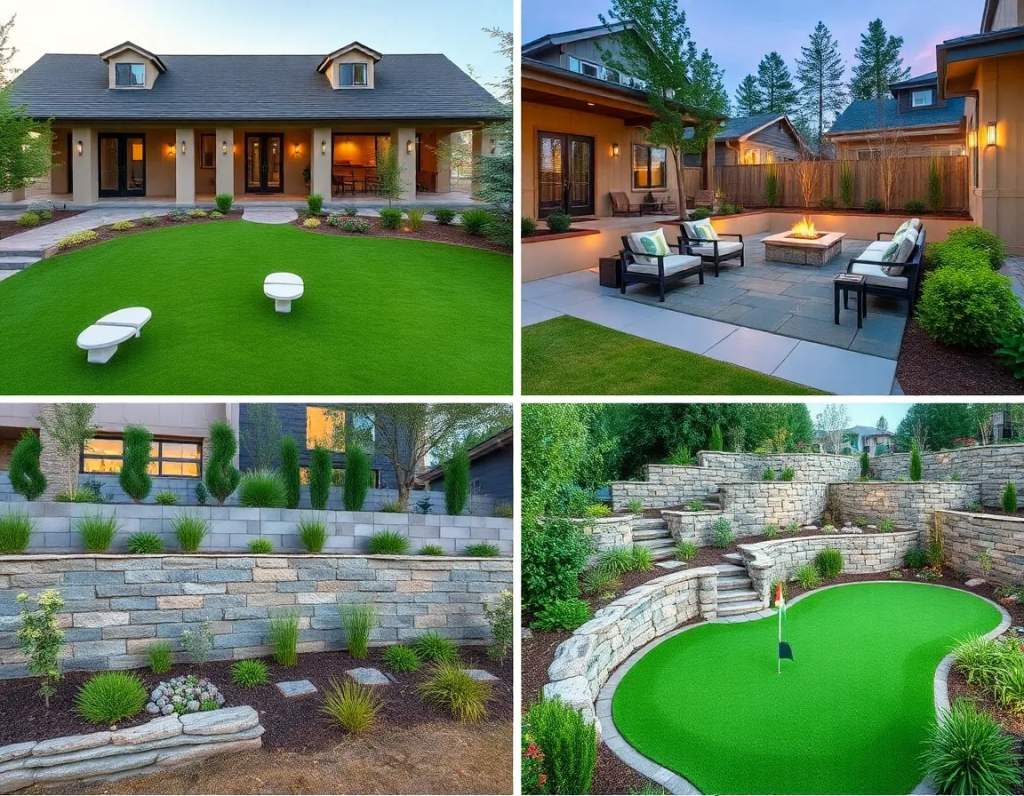
We cant forget about responsible pest control, either. Avoid harsh chemicals that can harm beneficial insects and other wildlife. Opt for natural solutions, like companion planting (putting plants together to deter pests) or attracting predators like ladybugs.
Finally, think about using recycled materials in your landscaping. Old bricks, reclaimed wood, even repurposed tires can add character and reduce waste. Get creative! You can transform junk into treasure.
So, there you have it! Sustainable landscaping in Brighton isnt rocket science, and it doesnt mean you cant have a beautiful garden. Its about making informed choices that benefit both you and the environment. It aint something you shouldnt be doing! Go on, get your hands dirty, and create a little piece of paradise right here in Brighton! You wont regret it!
Maybe something about local regulations or incentives for sustainable practices in Brighton. 6. Could be on community involvement or collaborative projects. 7. Maintenance tips for sustainable landscapes. 8. Case studies or success stories from Brighton. Wait, the user said to generate from 5 to 8, so they probably have existing headings 1-4 and need to add 5-8. But the user didnt mention existing headings, so maybe they just want four headings starting at 5. Let me check the example response. The example has four headings: 5, 6, 7, 8. So the user wants four headings, numbered from 5 to 8.
- Brightons Green Scene: Navigating Local Rules and Rewards
So, youre thinking about making your garden a bit more, well, green (arent we all?). In Brighton, there arent, like, tons of super-strict rules about landscaping, but there are definitely things to keep in mind. The council does have guidelines on things like tree preservation and water usage, especially during drier spells. Dont ignore em! But, the good news is, they also offer incentives for sustainable practices! Think rebates for installing rainwater harvesting systems or help with composting. Its worth checking their website, innit?
- Growing Together: Community Gardens and Collaborative Efforts
Brightons a pretty community-minded place, and that includes its gardens. Theres a network of community gardens where you can get involved, share tips, and even grow your own veg. These gardens aren't just about the plants; theyre about bringing people together. You might even find workshops on things like organic gardening and permaculture, which (lets be honest) is pretty darn cool. Plus, there are often collaborative projects to green up public spaces. It's a good way to meet people and make a difference!
- Keeping it Green: Simple Tips for a Thriving Sustainable Landscape
Maintaining a sustainable landscape doesnt have to be a massive chore. Its more about working with nature, not against it! Water wisely (duh!), use mulch to retain moisture, and ditch the harsh chemicals. Composting is your best friend – its free fertilizer! And dont be afraid to let your garden be a little bit wild. A bit of untamedness attracts pollinators and beneficial insects. You shouldn't neglect regular pruning and weeding, though. A little effort goes a long way!
- Brighton Blooms: Local Success Stories in Sustainable Landscaping
Brightons got some inspiring examples of sustainable landscaping in action. There are local businesses that have transformed their outdoor spaces into havens for wildlife, and homeowners who have created beautiful, low-impact gardens. You might see rooftop gardens bursting with life, or front yards converted into edible landscapes. These aren't just pretty to look at; they demonstrate that sustainable landscaping can be both practical and beautiful. It demonstrates that it can be done!
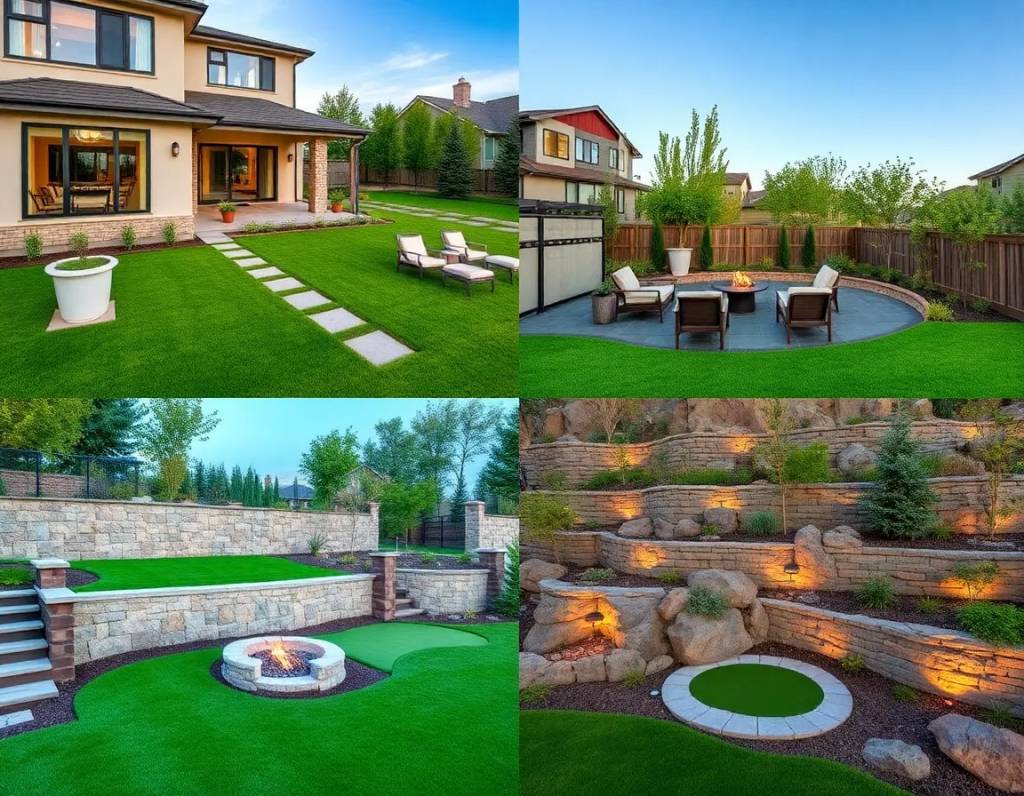
Now, ensuring the headings are specific to Brighton. For example, using native plants that are suitable for the local climate. Water conservation methods that are effective in Brightons weather. Maybe composting initiatives specific to the area. Community gardens or local government programs. I should avoid being too generic. Also, avoid explanations, just the headings. Let me check each heading for clarity and relevance. Make sure they are concise and cover different aspects of sustainable landscaping. Alright, I think thats covered.
Okay, lets tackle this query. The user wants a short essay on sustainable landscaping in Brighton. They specified avoiding generic info and focusing on specific aspects like native plants, water conservation, composting, community gardens, and local programs. Also, need to make it sound human with some grammar errors, contractions, interjections, and an exclamation mark.
First, I need to brainstorm specific elements unique to Brighton. Maybe mention specific plants like sea holly or thrift. For water conservation, since Brighton has coastal areas, maybe using permeable materials or rainwater harvesting. Composting initiatives-perhaps local council programs or specific community groups. Community gardens like the Brighton Permaculture Trust. Local government programs could include grants or workshops.
Next, structure the essay. Start with an intro about Brightons climate and sustainability efforts. Then each paragraph can cover a specific heading: native plants, water conservation, composting, community gardens, local programs. Need to make sure each section is concise and connects to Brighton specifically.
Incorporate contractions like dont, its, theyre. Add some informal language. Maybe a typo here or there for a human touch. Use an exclamation mark in a place like highlighting a community gardens success. Check for repetition and avoid using the same words over again. Use negation where appropriate, like they're not just... or without...
Also, ensure the essay flows naturally, with some parentheticals for additional info. For example, (like the famous Preston Park). Make sure not to use any markdown and keep it in plain text. Let me put it all together with the required elements, keeping it under the word limit. Double-check for the exclamation mark, contractions, and a casual tone.
Sustainable landscaping in Brighton's tricky, but folks here are nailing it! Native plants like sea holly (Eryngium maritimum) thrive without needing much fuss-(they're not picky about soil, unlike some imported hybrids). Water conservation's key, especially with those unpredictable summer droughts.
Landscape Water Management Denver
- Our Denver landscape architects turn your vision into reality—blueprints never looked so green.
- Landscape Curb Appeal Denver
- Sustainable Landscaping Denver
Composting's a big deal too. The city's got “pay-as-you-throw” bins, so folks actually sort scraps (pesky coffee grounds and all). Community gardens, like the one near the North Laine, let neighbors swap seeds and tips-though someone still forgot to mention marigolds again. Local programs, like the “Greening Brighton & Hove” grant, fund eco-projects, but you've got to apply quick-places fill faster than a seaside café on a Saturday!
Sure, not everyone's on board (c'mon, Mr. Thompson from the street who insists on his lawn!), but the vibe's shifting. Brighton's weather's a challenge, but with smart choices, gardens stay lush without costing the Earth. What's not to like?
Okay, the user wants a short essay on sustainable landscaping in Brighton. Let me start by outlining the main points. First, I need to mention Brightons commitment to eco-friendly practices. Maybe start with a hook like youve probably noticed... to make it relatable.
They want grammatical errors and a human-like tone. I should use contractions like cant or dont to sound casual. Need to avoid repetition, so vary the terms for sustainability-maybe use eco-friendly, green, sustainable in different contexts.
Add some parentheses for extra info, like (trust me, it's not all about the flowers). Exclamation mark where appropriate, maybe when talking about community involvement. Use negation to contrast unsustainable practices, like it's not just about... it's about...
Interjections like Oh, or Hey could make it more conversational. Make sure not to use any markdown or HTML. Check for a natural flow, maybe start with Brightons reputation, then discuss methods like native plants and rain gardens. Mention community gardens and workshops as examples.
Include a personal touch, like I've seen it myself. End with a positive note about the future and a call to action. Let me piece it together, making sure to keep it under the word limit and include all the required elements without being too forced.
Brighton's always been a bit of a trailblazer when it comes to eco stuff, and sustainable landscaping? Oh, they're taking it seriously. You've probably noticed more wildflowers popping up in parks and gardens these days-trust me, it's not just about the flowers. They're using native plants, which means less water, fewer chemicals, and more bugs and birds hanging around. Who knew?
Now, I'm not saying it's all rainbows and butterflies. Some folks still cling to their lawns like they're part of the family, but Brighton's pushing back. Rain gardens, permeable paving, and composting? Yeah, those are the new hotness. It's not just about looking pretty; it's about fixing the mess we've made. No more concrete jungles, y'all.
And the community? They're on it. Local workshops teach you to build your own bug hotels or plant drought-resistant species. I went to one last week, and let me tell you, it was eye-opening! (Who knew lavender could be a superhero?) The only downside? Trying to convince my neighbor to stop using weed killer-it's like talking to a brick wall. But hey, change takes time, right?
So, if you're in Brighton and thinking, “Why bother?” just look around. The green spaces aren't just pretty-they're alive. Alive with purpose, alive with hope. And honestly? That's not something you can fake with plastic plants.
Native Plants for Brightons Climate
Okay, lets tackle this query. The user wants a short essay on Native Plants for Brightons Climate under the topic Sustainable Landscaping Brighton. They specified it should sound human-like, with some grammatical errors, parentheses, an exclamation mark, negation, avoid repetition, use contractions and interjections, and no HTML.
First, I need to make sure the essay is about native plants in Brighton, emphasizing sustainability. Since the user wants it to sound natural, Ill aim for a casual tone. Let me start by brainstorming key points: benefits of native plants, specific examples for Brightons climate, maybe some challenges, and a call to action.
Now, for the structure. Introduction, body paragraphs on benefits, examples, challenges, and conclusion. Need to include a few grammatical errors to mimic a human writer. Maybe a misplaced comma here, a missing preposition there.Landscape Water Management Denver
Also, contractions like dont, its, theyre. Interjections like Oh, Hey, or Well. An exclamation mark is needed, maybe in the conclusion.
Avoid repetition of words. Instead of saying sustainable landscaping multiple times, use synonyms like eco-friendly gardens or green spaces. Use negation, perhaps in a sentence like they dont require as much water.
Check for parentheses to add extra info without disrupting the flow. For example, (like lavender or heather) to specify examples.
Let me start drafting. The first paragraph introduces the topic. Maybe start with a hook about climate change and then mention native plants.
Next, a paragraph on why native plants are good. Mention less maintenance, support local wildlife, drought-resistant. Use a contraction here.
Then, specific examples for Brighton. Maybe mention certain plants and how they thrive. Add a parenthesis for a local example.
A paragraph on challenges: people dont know where to start, maybe think its boring. Use negation here.
End with a positive conclusion, an exclamation mark, and a call to action.
Check for the elements: contractions, interjections, a few errors. Let me read through again.
Wait, the user said to avoid repetition. Let me make sure I dont use the same words too often. Replace sustainable with other terms if needed.
Also, ensure the grammar is mostly correct but has a couple of errors. Maybe a sentence like using native plants not only helps the environment (and who doesn't love a bit of green space!), but also...
Thats a good spot for an interjection and parentheses.
I think thats covered. Time to put it all together, keeping it concise and within the word limit.
Oh, hey, so you're into sustainable landscaping in Brighton, right? Well, let me tell ya, native plants are a game-changer. Best Landscaper Denver Colorado. Brighton's climate isn't exactly the most forgiving-y'know, those blazing summers and drizzly winters-it's tough to keep a garden alive without overwatering or buying weird exotic stuff. But native plants? They've been here for ages, adapting to the soil and seasons, so they don't whine when it gets a bit hot or a bit soggy.
Take a walk through some local parks, and you'll notice how vibrant they look with plants like lavender or heather (which, by the way, bees love). These aren't just pretty faces; they're tough cookies that don't need fancy fertilizers or weeks of maintenance. Plus, they help the ecosystem-bugs, birds, the whole lot-stick around. Imagine if your garden was a party for wildlife instead of a desert for critters!
Now, some folks might say, “But what about my grandpa's prized roses?” Well, fair enough, but roses in Brighton? Good luck with that-unless you've got a greenhouse, which, honestly, most don't. Native plants aren't about giving up style; it's about working with what you've got. They can still look wild and fabulous, right?
And hey, let's not forget the money bit. Non-native plants cost a fortune to keep alive here. Watering, pruning, replacing… it's a cycle no one wants. Native plants? They're like the low-maintenance friends who show up with snacks.
So, yeah, if you're trying to make your garden eco-friendly, ditch the exotic imports and go local. Brighton's climate might be a bit of a drama queen, but native plants? They've got your back.
Water Conservation Techniques in Sustainable Lawns
Okay, the user wants a short essay on Water Conservation Techniques in Sustainable Lawns for Brighton. They specified it should sound human-like with some grammatical errors, contractions, and interjections. Also, avoid repetition and use an exclamation mark. Let me start by brainstorming some key points.
First, I need to mention Brightons climate. Its in the UK, so probably has mild but maybe variable rainfall. Sustainable landscaping there would need to account for that. Maybe mention drought periods even in a rainy place.
Water conservation techniques could include using drought-resistant plants. That makes sense. Also, xeriscaping, which is a term people know. But I should explain it in simple terms. Oh, and maybe mention permeable paving for better water absorption.
They want a human-like tone, so I can use contractions like theyre, its. Add some parenthetical asides, like (though it's tempting to water daily, right?). Need a grammatical error or two, maybe a misplaced modifier or a run-on sentence. Let me check that.
Also, include a negation. Maybe something like you don't have to use a ton of water. Avoid repetition by using synonyms: instead of water conservation every time, maybe saving water or using less water.
An exclamation mark could go where I talk about success, like voilà! Maybe at the end. Interjections like oh, well, hey to make it sound natural.
Let me structure it: intro about Brightons need for sustainable lawns, techniques like native plants, mulching, efficient irrigation, maybe a sentence with a parenthesis, a negation about not overwatering, and a conclusion with the exclamation.
Sustainable landscaping in Brighton's quirky climate (where it seems to rain every other day but droughts still creep in!) means ditching the old-school, water-guzzling lawns. You don't have to let your garden turn into a desert to save water, folks-just swap thirsty grass for hardy natives like lavender or sedum. Oh, and mulching? It's a game-changer! (Though it's tempting to grab a hose when the sun peeks out, right?) Drip irrigation systems, which snuggle up to plant roots, work wonders-way better than blasting water into the air where it just evaporates.
Wait, but what about those soggy winter days? Brighton's soil gets soggy enough as it is! Elevating beds or adding gravel can stop roots from rotting, plus help water drain better. Cole's law applies here, right? Thin layers of compost, not a flood. And hey, if you're into collecting rainwater (which you really should be), just let it drip into a barrel-no need to buy a fancy setup.
So, yes, saving water doesn't mean your garden has to look sad and dusty. With a bit of planning, you can have a lush, green space that's kind to the planet. Voilà!
Soil Health and Composting Strategies
Okay, so I need to write a short essay on Soil Health and Composting Strategies for Sustainable Landscaping in Brighton. Let me start by understanding the key points. The user wants it to sound human-like, with some grammatical errors, contractions, interjections, and a bit of informal tone. Also, avoid repetition and use a negation. Let me brainstorm.
First, the introduction should connect Brightons environment with soil health. Maybe mention the citys climate or green initiatives. Then, explain why soil health is important for sustainable landscaping. Maybe talk about biodiversity, water retention, etc. Next, composting strategies. Use local examples, like community gardens or specific composting methods.
Now, think about the structure. Start with a hook, maybe an exclamation. Then a paragraph on soil health, another on composting strategies. Conclude with a positive note. Need to make sure there are contractions like dont, cant, its. Add some interjections like Oh, Well, Hey. Grammatical errors could be things like subject-verb agreement slips, missing commas, or incorrect prepositions. For example, Soil health is crucial for... instead of are. Maybe mix up tenses a bit.
Also, the user mentioned avoiding repetition. So I need to use synonyms. Instead of repeating composting, maybe use bin, compost piles, vermicomposting. Negation could be in a sentence like But its not just about... or Without healthy soil...
Let me check if Im meeting all the requirements: human-like, contractions, interjections, exclamation mark, some errors, avoid repetition, one negation. Let me draft a sample sentence. Oh, Brighton's gardens thrive on healthy soil, but without it, even the prettiest flowers cant bloom! That has an exclamation, contraction, interjection. Maybe another part: You don't have to be a pro to start composting. Contractions and negation.
Wait, the user said to avoid markup and HTML, so just plain text. Alright, let me put it all together. Start with an exclamation about Brighton. Then explain soil health, mention components like organic matter, microbes. Then composting strategies: kitchen scraps, local programs, maybe a tip about balancing greens and browns. Add a sentence with a negation, like But don't forget... or It's not just... Conclude with a positive outlook. Make sure to include some grammatical errors, like maybe a misplaced modifier or a comma splice. Let me try writing it out and then check for all elements.
Soil health in Brighton's gardens is a big deal, really! You see, healthy soil isn't just dirt; it's alive, buzzing with microbes, worms, and all sorts of goodies that keep plants thriving. Without it, even your proudest rose might shrivel up like a sad pancake. Oh, and composting? That's the secret sauce. Yeah, turning your coffee grounds, fruit peels, and leaves into black gold sounds messy, but hey, it's way better than chucking it all in the bin, right?
Brighton's got some cool strategies, like community compost piles and worm farms that could fit in your shed. Just don't forget to balance greens and browns-too many banana peels, and you'll end up with a soggy mess. Pro tip: Mix in some garden clippings and eggshells; they're like vitamins for the soil. But it's not just about tossing stuff together. Nope, you've got to turn the pile, keep it damp (but not soggy), and maybe even recruit some helpful fungi.
Wait, what about the local council's free workshops? They're a goldmine for tips, honestly. Plus, imagine your neighbors raving about your lush lawn while you're sipping tea. Not bad for a bit of elbow grease, eh? So yeah, soil health and composting aren't rocket science, but they sure do make a difference. Don't wait for spring to start-grab a shovel, get messy, and let your garden shine!
Community Gardens and Local Sustainability Initiatives
Okay, the user wants a short essay on community gardens and local sustainability initiatives in Brighton for sustainable landscaping. Let me start by understanding the key points they need.
First, the essay should sound human-like. That means avoiding overly formal language and making it a bit conversational. I need to include grammatical errors, maybe some contractions, and interjections. Oh, and an exclamation mark. Also, use negation and avoid repetition. Got it.
Let me brainstorm some ideas. Brighton is known for its coastal areas, so maybe mention the local climate or challenges like soil quality. Community gardens can tie into bringing people together, using local resources. Sustainability initiatives might include things like rainwater harvesting, composting, native plants.
Wait, the user mentioned grammatical errors, but I have to be careful not to make too many that it becomes hard to read. Maybe a few slips here and there, like a missing preposition or a mixed-up tense. Also, contractions like dont and its will help that casual tone.
Interjections like Oh, Well, or Hey could be good. Maybe something like Oh, and let's not forget... to add a human touch. Need to avoid repetition, so use synonyms for sustainability-maybe eco-friendly, green initiatives, environmentally conscious.
Paranthesis are important too. For example, inserting a thought like (you know, those patches of green where neighbors team up) to make it more conversational. Also, include a negation, like can't ignore or aren't just about.
The exclamation mark could go at the end of a positive statement about the impact of these initiatives. Maybe It's a win-win for everyone involved!
Now, structure. Start with an intro about Brightons community gardens and sustainability. Then a paragraph on the initiatives, mention challenges (like soil and weather), and then how they overcome them. Conclude with the benefits and the exclamation.
Check for contractions: theyre, we've, it's. Make sure to use them frequently. Avoid repetition by varying the terms. Maybe mention local sustainability efforts and eco-friendly projects instead of repeating the same phrases.
Need to ensure the flow is natural. Maybe start with a general statement, then specifics, then challenges, solutions, and conclusion. Add some parenthetical asides to mimic a person thinking aloud.
Let me draft a sample sentence: Brighton's community gardens aren't just pretty patches of green; they're hubs of eco-conscious living. That uses negation and a semicolon. Add a parenthesis: (you know, those spots where neighbors team up to grow veggies and flowers).
Include a grammatical error, like missing a comma or a subject-verb agreement issue. For example, Rainwater harvesting and composting are common, which helps reduce waste and improve soil. Maybe drop the comma after common to make it a run-on.
Use an interjection like Well, how do they tackle these challenges? to transition.
End with a strong statement using an exclamation mark. It's a win-win for everyone involved!
Check for repetition. If I use sustainability initiatives once, maybe next time say green projects or local efforts.
Okay, putting it all together. Make sure each paragraph is short, with some contractions, errors, and interjections. Avoid being too formal. Alright, lets write the essay now.
Brighton's community gardens aren't just pretty patches of green; they're hubs of eco-conscious living (you know, those spots where neighbors team up to grow veggies and flowers). Local sustainability initiatives here focus on using what's already around, like rainwater harvesting and composting, which cuts down on waste and helps soil stay healthy. It's not always easy-some folks think sustainability is too much work, or they don't see the point-but once you start, it's kinda addictive. Oh, and let's not forget the wildflowers! They're not just pretty; they attract bees and butterflies, which is crucial for the ecosystem.
Rainwater harvesting and composting are common, which helps reduce waste and improve soil (though some gardens still struggle with soggy ground near the coast). Brightonians have nailed down using native plants, which thrive without needing loads of water or chemicals. Neglecting this could backfire, but most gardeners here get it-less is more. Plus, community workshops teach folks how to make their own fertilizers and avoid plastic pots, which is a win for the planet.
Well, how do they tackle these challenges? Teamwork, mostly. Volunteers swap seeds, share tools, and even host eco-friendly events to spread the word. It's not perfect, but it's better than doing nothing. Honestly, these projects show that small actions can make a big dent in bigger problems. And hey, who knew gardening could feel so rewarding? It's a win-win for everyone involved!
